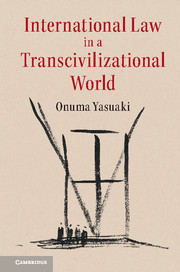(image source: PUR)
The Presses universitaires de Rennes published Les langues de la négociation. Approches historiennes, edited by Dejanirah Couto and Stéphane Péquignot.
Book abstract:
Ce livre propose une enquête historique et exploratoire sur les enjeux, les usages et les conflits linguistiques liés aux négociations du Moyen Âge à l’époque moderne. Centré sur la diplomatie et le commerce, sur des moments de rupture, il réunit un ensemble d’études relatives à des négociations menées en Europe et autour de la Méditerranée, avec une ouverture comparative.
Table of contents:
- Prendre langue(s) (Stéphane Péquignot)
- "« Une diplomatie sans langue ? » La question des échanges linguistiques dans la diplomatie médio-byzantine" (Nicolas Drocourt)
- "Les usages linguistiques dans les relations entre Almohades et Pisans (début XIIIe siècle)" (Pascal Buresi, Travis Bruce & Mehdi Ghouirgate)
- "Aspects linguistiques de la diplomatie sicilienne au XIIIe siècle (1220-1290)" (Gian Luca Borghese & Benoît Grévin)
- "Les langues des négociations au XVe siècle. L’exemple de Barcelone" (Stéphane Péquignot)
- "« E perché costui è uxo di qua e intende bene la lingua » Remarques sur la communication entre marchands au bas Moyen Âge" (Maria Elisa Soldani)
- « Traduttore, traditore » Vicissitudes linguistiques d’une ambassade portugaise dans les deltas du Gange et de l’Irraouaddy (1521) (Dejanirah Couto)
- "Les problèmes de communication aux congrès internationaux De Westphalie à Ryswick (1643-1697)" (Guido Braun)
- "Comment « parler français » aux « despotes » de l’Europe ? La question des normes du langage diplomatique à l’époque révolutionnaire" (Marc Bélissa)
- "Connaissez-vous la théorie de la langue-soleil ? Une histoire européenne du fantasme scientifique dans la Turquie des années 1930" (Emmanuel Szurek)
- "Conclusions" (Jean-Claude Waquet)
On the editors:
Dejanirah Couto est maître de conférences habilité à l’École pratique des hautes études. Ses recherches portent sur l’empire portugais et ses relations avec les pouvoirs politiques asiatiques (principalement les empires musulmans) à l’âge moderne.
Stéphane Péquignot est maître de conférences à l’École pratique des hautes études. Ses recherches portent sur la diplomatie et les pratiques de négociation au Moyen Âge, ainsi que sur la couronne d’Aragon et le royaume de Majorque.
More information on the PUR website.





